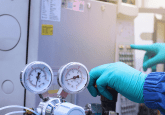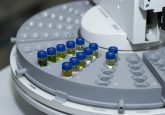Akintunde Bello: my time in the biopharmaceutical industry

Spanning 3 decades, Akintunde Bello’s career in the biopharmaceutical industry provides a unique perspective on the remarkable progress in drug discovery and development. From his early days as a bioanalytical scientist to leadership roles in clinical pharmacology at major pharmaceutical companies, Akintunde observed the evolution of analytical methodologies, the rise of groundbreaking therapeutic modalities, and, more recently, the growing impact of artificial intelligence and machine learning (AI/ML) in drug development.
 Akintunde Bello
Akintunde Bello
Former Senior Vice President, Head of Clinical Pharmacology, Pharmacometrics & Bioanalysis
Bristol Myers Squibb (BMS; NJ, USA)
Dr Akintunde Bello is an experienced leader with over 3 decades of expertise in preclinical and clinical drug development. He has held senior positions at Sanofi (Reading, UK), BMS, and Pfizer (both NY, USA), where he supported the development and approval of multiple marketed drugs across the oncology, pain/inflammation, cardiovascular and infectious diseases therapeutic areas.
In his most recent role, Dr Bello led the clinical pharmacology, pharmacometrics, quantitative systems pharmacology, and bioanalytical groups at BMS. He holds a BSc from Portsmouth University in Biomedical Science, an MSc in Instrumentation and Analytical Sciences from the University of Manchester and a PhD in Pharmaceutical Sciences from King’s College, University of London (all UK).
Reflecting on a 30-year career in the biopharmaceutical industry, I feel extremely privileged to have witnessed and been involved in the development of a host of therapies. I have fond memories of my first industry job at Rhone Poulenc Rorer (now Sanofi), where I started as a bioanalytical scientist after I completed an MSc in Instrumentation and Analytical Sciences. I joined the DMPK group as a scientist, developing high-performance liquid chromatography with ultraviolet detection (HPLC-UV) and LC–MS/MS assays to support the evaluation of preclinical-stage drugs. From then to now, I have been struck by the advancement and evolution of bioanalytical methodologies as well as the increased performance in terms of sensitivity and selectivity.
My start in the industry coincided with the introduction of LC–MS/MS as a mainstay for bioanalytical assay development and I am not exaggerating when I state that these initial Triple Quad machines took up an entire laboratory. Today, it is not uncommon to see an array of HPLC–MS/MS instruments of different types lined up on a single lab bench. In those early days, I also had the opportunity to dabble in supercritical fluid chromatography (SFC) using a customized HPLC system incorporating liquid nitrogen-cooled HPLC pump heads. I got to see the evolution of this technology at BMS, where the bioanalytical group has used a commercially available SFC system in tandem with MS/MS to develop novel bioanalytical chiral assays with optimized performance characteristics.
Exposure to the biopharmaceutical industry in my initial role ignited a strong passion to learn more. I was extremely fortunate that my colleagues and managers were supportive of my interest and were instrumental in my being awarded a company-sponsored PhD in Pharmaceutical Sciences at King’s College University of London. When I completed this, I was rehired by Rhone Poulenc Rorer as a DMPK Team Leader. I worked in this role for several years before being recruited to join what was essentially the clinical pharmacology group at BMS in the USA in 1998. People have asked what drove my decision to move from preclinical to clinical development and the simple answer is curiosity and a strong interest in building my experiences. I think the transition was helped by my trying to absorb as much as I could about drug development as well as nurturing some great relationships with colleagues and mentors. To shorten a pretty long story, I spent 5 years with BMS before an amazing 11-year stint at Pfizer, before returning to BMS in 2015 as an Executive Director of Clinical Pharmacology.
Over this time, I have seen huge advances in drug discovery and development across almost all therapeutic areas. Progress in the field of oncology over the last 30 years has been particularly impressive. These advances were enabled by the invention and refinement of some amazing research tools leading to our increased understanding of molecular biology and genetics, and their relationships to different diseases and conditions. This in turn has supported the development of novel and innovative therapeutic modalities that include molecularly targeting small molecules (e.g. TKIs), monoclonal antibodies (e.g. ADCs and bispecifics), siRNAs, and gene and cellular therapies (e.g. CAR-T). Although these drugs are major advances on the treatment options that existed when I entered the field in the 1980s and offer significant increases in survival, there are still too many patients who do not derive sustained benefit or a cure. Although a possible exception has been seen for patients with certain hematological cancers receiving CAR-T therapy, where a majority of those treated had complete and durable responses. This is especially notable as many of these patients have exhausted all other treatment options.
Towards the latter years of my career, the growing impact of AI/ML on the biopharmaceutical industry has become evident and this uptake has been driven by the strives for productivity improvements in a high attrition industry. The advent of new technologies and computational approaches that include, but are not limited to AI/ML, will help drive advances across almost all fields of drug discovery and development. It is very apparent that these new technologies and approaches will continue to be drivers for transformation and change and I am intrigued to see how they will be used in the future. Looking forward, I am opportunistic that we will continue to make advances in our efforts to address many of the unmet needs of patients and reduce the burden of pain and suffering across a host of diseases.
You may also be interested in:
Our expert opinion collection provides you with in-depth articles written by authors from across the field of bioanalysis. Our expert opinions are perfect for those wanting a comprehensive, written review of a topic or looking for perspective pieces from our regular contributors.
See an article that catches your eye? Read any of our Expert Opinions for free.






